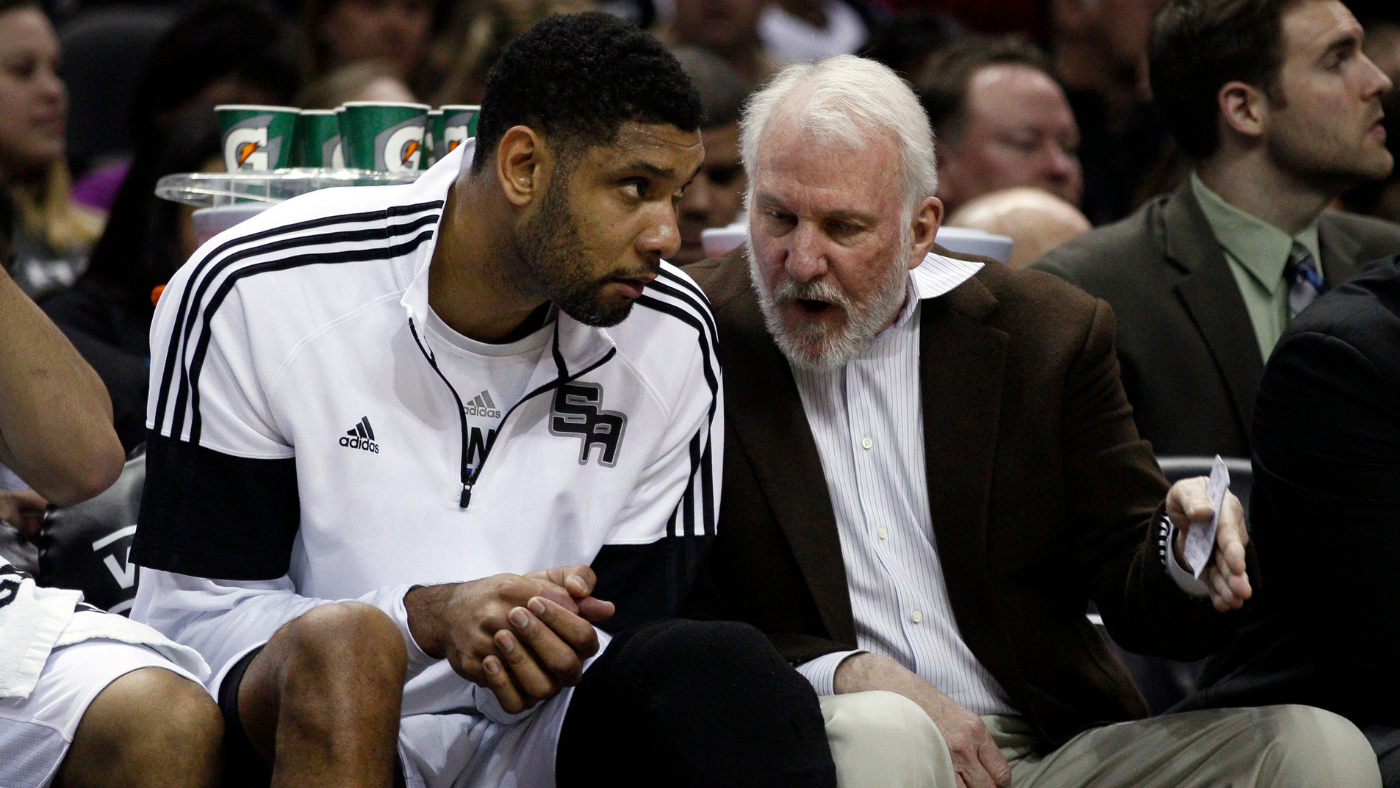
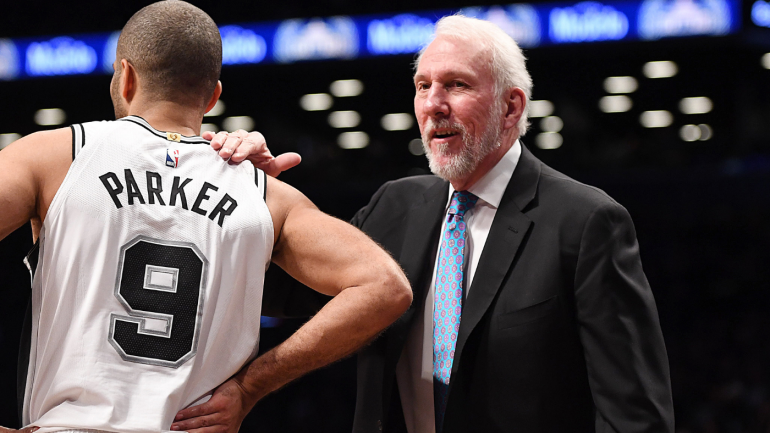
There are a multitude of ways to celebrate the remarkable genius and all-time great career of Gregg Popovich, who announced Friday that he will officially step down as head coach and transition into a full-time role as team president for the San Antonio Spurs.
There are his five titles. Or his 18-consecutive seasons with 50 or more wins. He also boasts the highest winning percentage for any head coach in NBA history. He won 170 playoff games, and was Coach of the Year three times. On and on the accolades go.
But right up there with every bit of those GOAT-level résumé builders sits a Pop triumph every bit as important and lasting to the Spurs, and for the league writ large: His understanding, years in advance, that the key to building a lasting culture of greatness requires the ability to turn stars into partners rather than just players. It was the strongest cornerstone of the Spurs’ Popovich era.
Popovich won those five championships spread out over 15 years by helping create one of the most remarkable, if quiet, cultures of excellence in sports. If Pat Riley had the Heat Way (flashy, talked about, and well-celebrated) in Miami, the Pop Way was the opposite in San Antonio.
Under Popovich the Spurs were often overlooked, and they relied not on dumping a handful of rings on the table during pitch meetings to lure superstar free agents but, conversely, a coming together and partnership over dinners and wine that maintained the excellence already there.
There is no wrong way to win. Many approaches, all remarkable, can get the job done. Riley’s approach had its major successes. But so did Pop’s, and often in ways not as readily studied and revered.

There were lots of signs of this. That Tim Duncan and the other greats who helped augment that era — outside, eventually, of Kawhi Leoanrd — stayed in San Antonio speaks volumes about Popovich. They took less money, shunned the limelight and became the antidote to superteams forged in free agency.
That happens not through force but through friendship, not through a caldron but through collaboration. Pop rode his guys, yes, but his endings with his players were usually bookmarked by tears and praise — not, like with many others, the consternation and hard feeling often borne of intense competition.
Pop also built his teams quietly, without the fanfare of recruitment. His way was less idolized because it produced far, far fewer headlines before its major successes.
There was no Shaq, or LeBron James and Chris Bosh, added to the mix to make that leap. There were no rumors of poaching stars or being poached. The Pop Way was that the team he helped build, and the stars he helped develop and nurture, largely wanted to stay.
When Kobe was getting minutes and money at the end of his career with the Lakers, Duncan was taking on a new, lesser role to win with the Spurs.
When the Big Three in Miami was creating the modern idea of player power and the notion of superteams, the Spurs were keeping on with the same mix as always.
This came down to Pop, and it played out in a multitude of ways — over years, even decades, yes, but also in the moment-to-moment adjustments and shifts the truly remarkable coaches craft in order to keep winning.
Take the Spurs final title in 2014. It is a perfect example of the Pop Way winning in ways that defied what everyone else did: With selflessness, a rare basketball acumen and an ability to see the game clearly before everyone else.
By this point, Pop’s team was aging, and the great man had already developed a new idea: load management. He was so far ahead of the rest of the NBA, the league would years later have to change the very rules of the game to try and get teams to stop doing in the 2020s what Pop had been doing 10 years earlier.
They’re still fighting that fight, even as Pop moves from the bench to the Spurs’ C-suite.
But this approach — limiting his guys’ minutes — took more than just foresight and, frankly, guts. It took an ability to talk stars who had already won all there was to win into the that idea less would literally lead to more.
That 2013-14 team did not have a single player who averaged 30 minutes per game over the regular season. They are the only team in NBA history to not have a single player average that many minutes and still win it all.
That means trusting the team over any individual. It means convincing guys to play, and therefore shine, less. It means knowing your strategy will win in June, if not as much in December, February and March.
It was a sea change, and it was a stroke of brilliance. Duncan had averaged 39.3 minutes per game during his first title run 15 years earlier, but this time around, Pop had whittled that down all the way to 29.2 minutes per game. That’s why the 38-year-old, during that playoff run, was able to play a team-high 32.7 minutes per game, a critical supplement to Tony Parker’s excellence and a 22-year-old Leonard becoming Finals MVP.
It was classic Pop: Managing egos, getting buy-in, blending a mixture of the greats he was still coaxing the maximum from with the fruits of another young star he’d helped develop, all perfectly managed to take down a Heat team utterly different in its construction and approach from his own.
That title run, the one that ended LeBron’s time in Miami and set the history of the NBA on a multitude of other courses, stemmed form Pop’s early understanding of the need to load manage over a long season and also, critically, his ability to get stars on a literal championship team to buy into less minutes, less time, less shine, all in the service of actual collective greatness.
It’s true this trend did not continue with Leonard, who left in 2018. But, as Heat fans may be learning, the end comes for everyone, even the greats. Time runs its course.
Still, the culture Pop created, and the system and tactical realites he saw and advanced before most everyone else, defined his run as much as anything.
Culture takes years to build. And days to tear down. And the fact that Pop, having officially stepped aside as head coach, will transition to a full-time roll as the Spurs president offers the best chance for the best possible news for the post-Popovich coaching era, one that could have yet another renaissance with Victor Wembanyama.
That the Pop Way will continue in San Antonio for years to come.
This news was originally published on this post .




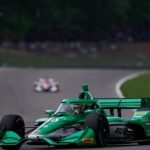
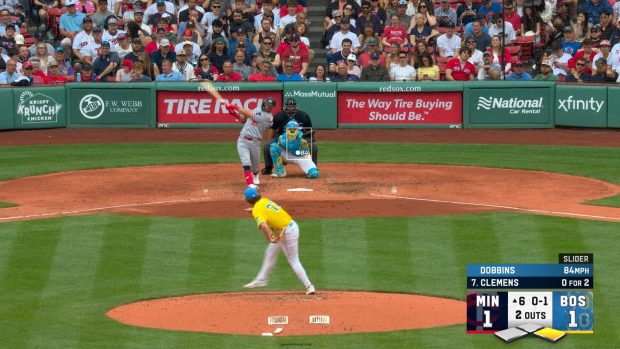
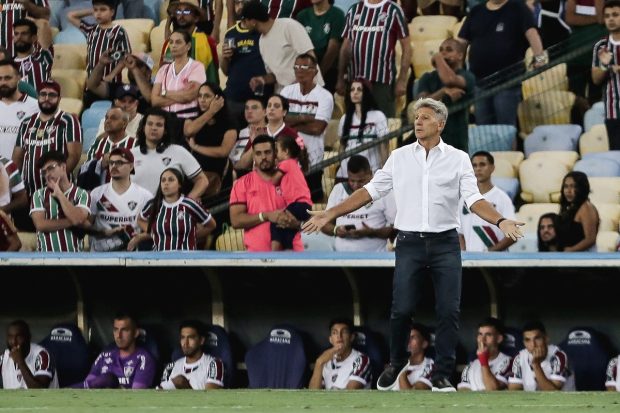
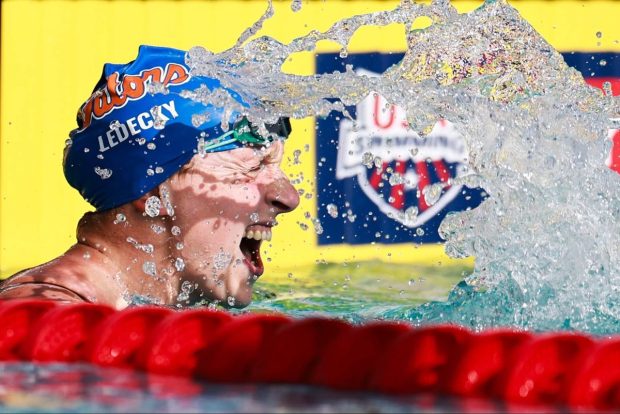
Be the first to leave a comment